
If you are a survivor of abuse and are married to a United States citizen or permanent resident, you may be able to obtain a green card by filing a self-petition under the Violence Against Women Act (VAWA). The VAWA program is a helpful tool for domestic abuse survivors to stay permanently in the United States without the assistance of their spouses. However, petitions can be denied, and there are some common reasons why they are denied. Submitting Incorrect Forms To The Incorrect Place When filing a petition for a VAWA green card, it is important that you submit the correct forms that are required for the petition. These forms can depend on your status. For instance, if you are facing removal proceedings or if you are facing an adjustment of status based on your marriage, there may be different forms that apply. In addition, you must be sure that the application is filed in the right place, depending on your immigration status. Submitting Incorrect…Read More
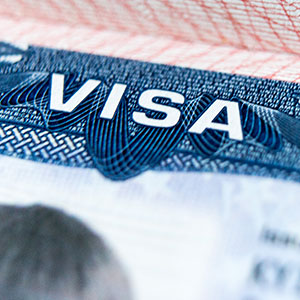
When seeking visas for entertainers and athletes, the two most common visas considered are the O visa and the P visa. Both visas are nonimmigrant visas that are used for the purpose of coming to the United States to perform a sport or craft. However, there are some important differences to consider when deciding which visa is the right one for you. What Is An O Visa? An O Visa is available for those individuals who demonstrate extraordinary ability in the fields of sciences, arts, education, business, athletics, film, or television. Applicants for O visas must show that they have national or international acclaim or that they have received internationally recognized awards. What Is A P Visa? A P visa is available for athletes, entertainers, entertainment groups, and culturally unique artists. For athletes applying for a P visa, it must be demonstrated that the individual has a level of skill substantially above the ordinary ability for athletes. Entertainers must be internationally recognized. Advantages Of An…Read More
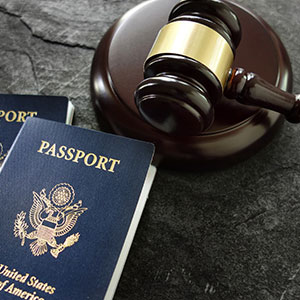
Although obtaining an O-1 visa is no small feat, the advantages are tremendous. One of the greatest advantages is that you are permitted to have dual intent when you have an O-1 visa. This means that you can intend to apply for permanent residency while in the United States on your O-1 visa. Not every visa is a dual intent visa. With an O-1 visa, your status will not be jeopardized if you decide to apply for a green card. There are some important steps you should take to change your status from an O-1 visa to a green card. Choose Your Green Card First, you should determine which green card is right for you. Because the requirements are similar to those of an O-1 visa, many choose to pursue the EB-1A for those with extraordinary achievement or the EB-1B for outstanding researchers and professors. Neither of these green cards requires a labor certification. In addition, the EB-1A does not require a job offer or…Read More
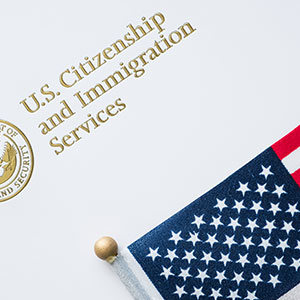
A controversial proposal that would boost the number of wealthy immigrant investors allowed in the United States under the EB-5 investor program is now under consideration by the Trump administration. The proposal would significantly boost up the capped total from 10,000 to 75,000 and reduce the required investment by half from $900,000 to $450,000. More than half of the investors who come to the United States on an EB-5 visa are from China. Many other investors come from South Korea and Taiwan. The EB-5 visa began in 1990 as an effort to help rural areas and economically distressed urban areas. However, over the years, some investors have found a way to increase investment in higher-income areas. For instance, EB-5 visas are sometimes used by property developers in New York City. It is believed by the administration that increased investment in projects in the United States that could create jobs would be especially helpful at a time when unemployment rates have soared. Critics Critics who are…Read More

L-1 visas are useful tools for businesses that are attempting to transfer workers over to an office in the United States. Here are some frequently asked questions about L-1 visas: What Is An L-1 Visa? An L-1 visa is one of the most useful immigration tools for foreign companies looking to make ties with the United States. This visa facilitates the transfer of key employees to the United States from companies that are related to or affiliated with United States corporations. As long as the specific requirements of the visa are met, nationals from all countries are welcome to use it. What Are The Advantages Of An L-1 Visa? An L-1 visa allows an individual to: Work in the United States for an organization that is a subsidiary, branch, affiliate, or parent of the company for which they worked in a foreign country Travel outside and within the United States Obtain visas for their spouse and minor children. Spouses are permitted to work under their…Read More
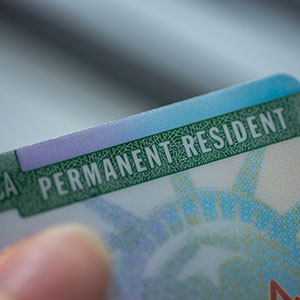
If you have filed an application for a visa and the U.S. Citizenship and Immigration Services (USCIS) needs more information, they will likely issue a request for evidence (RFE). You are required to respond within the timeframe indicated, usually between 30 and 90 days. The immigration official needs this information to process your application and have enough information to come to a favorable decision. A Request For Evidence Doesn’t Mean You’ll Be Denied You shouldn’t panic if you receive an RFE. It doesn’t mean that your application is going to be denied. It only means that the immigration official reviewing your application needs more information in order to make a decision. USCIS has the power to deny an application without ever issuing an RFE, so the fact that you’re given an RFE means your application is getting serious consideration. You now have the opportunity to provide more information or correct some things in order to ensure that your application is approved. Make Sure You Respond…Read More
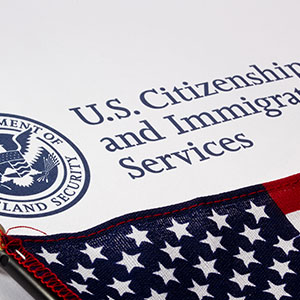
One of the fastest and most reliable ways that a foreign national can become a United States citizen is through investment in the country. Becoming a citizen by investment requires an EB-5 green card. Foreign nationals from countries across the world have taken advantage of this very beneficial green card. Through this program, you can receive permanent residence and eventually citizenship with all of the attached rights and privileges. Becoming A Citizen Through Investment To become a United States citizen through investment, an applicant must first seek an investor program visa. Under the new EB-5 rules, prospective applicants must invest at least $900,000 or $1.8 million depending on where they are investing. In addition to the monetary investment, the project must also create or preserve at least 10 US jobs for economic growth. Every year, a total of 10,000 EB-5 visas are issued. In order to apply for an EB-5 visa, you must locate an EB-5 project. The project can either be through an EB-5 regional…Read More
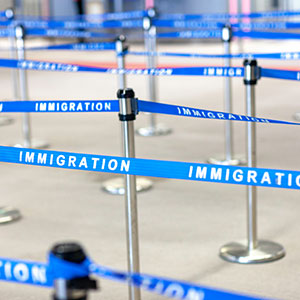
US immigration officials are allowed to deny visas and green cards to individuals who fail to meet certain criteria. Under the “public charge rule,” which was approved by a divided Supreme Court, these officials can now deny entry to a number of individuals. This will have a detrimental effect on legal immigration to the United States. However, the public charge rule does not apply to all categories of immigration and will not affect VAWA applicants. Public Charge Rule The new public charge rule took effect on February 24, 2020. The new rule affects people who are applying for visas and green cards within the United States. They are seeking an Adjustment of Status. While there has always been some type of public charge rule, it has now been expanded and will affect more potential immigrants. Previous rules denied visas and green cards to individuals who were primarily dependent on the government for subsistence. Now individuals who are “more likely than not” to use certain public…Read More

Just like anyone else who intends to come to the United States to work, athletes must have the appropriate visa or green card in order to perform their sport. There are a number of different options available, and you may want to consult with an attorney to determine what is the right visa for you. O-1 Visa O-1 visas are available for those individuals who demonstrate extraordinary ability in their field. To obtain an O-1 visa, an athlete must demonstrate that they have a “level of expertise indicating that they are one of the small percentage who has risen to the top of their field of endeavor.” P-1 Visa Athletes who cannot meet the high standards of an O-1 visa may qualify for a P-1 visa. In order to qualify for a P-1 visa, an athlete must demonstrate that they are internationally recognized and are coming to the United States to participate in a league or event with a distinguished reputation. Athletes who will be…Read More

Navigating immigration processes can be stressful at any time. During a global pandemic, the situation can become even more complicated. For instance, what do you do if you’re in the United States and at risk for overstaying your visa? Overstaying Your Visa Overstaying your visa can come with a cost. In the worst-case scenario, you may be prevented from entering the United States or from applying for another visa. If you overstay your visa from between 6 months to a year, you may be banned for at least three years. If you overstay longer than a year, you can be barred for ten years. Given the travel restrictions, it’s difficult to just book yourself a flight to your home country. So what do you do? The USCIS has issued a set of guidelines. If your case is complicated, you will want the assistance of an experienced immigration attorney. Apply For An Extension If you intend to remain in the United States, then you can apply for…Read More